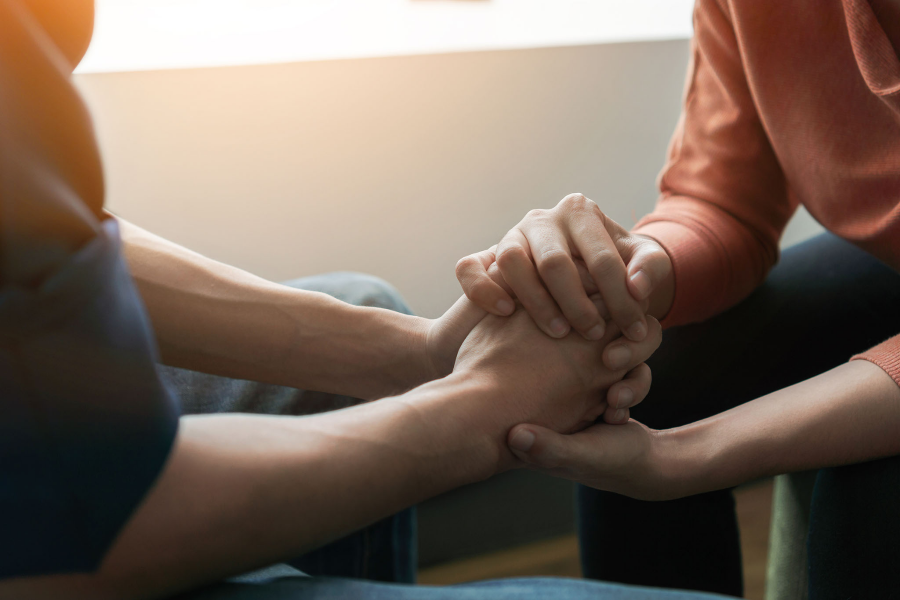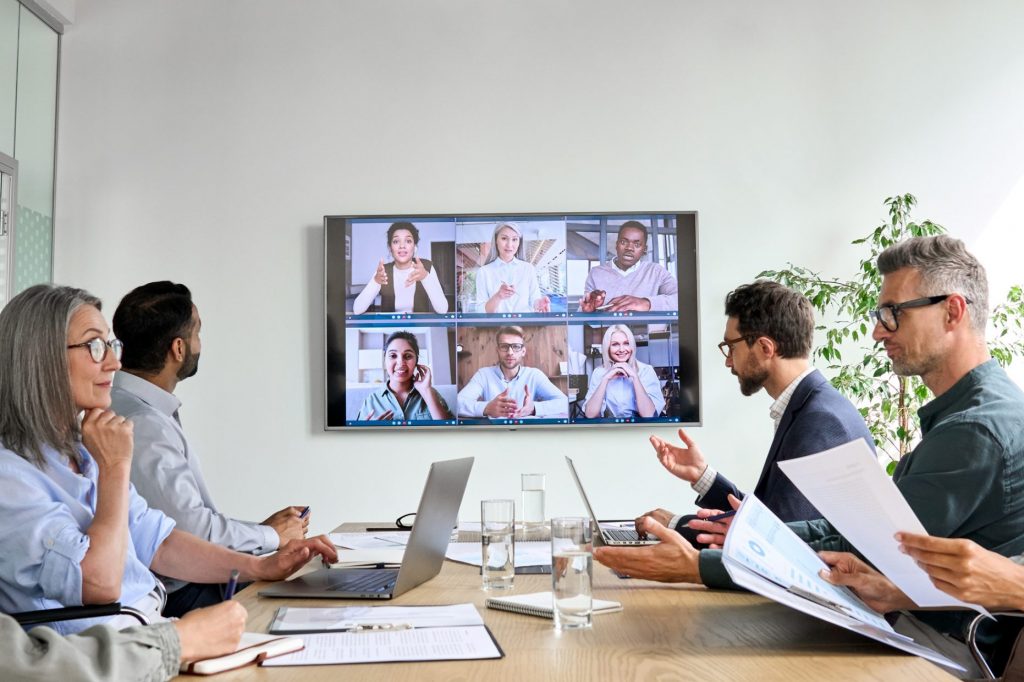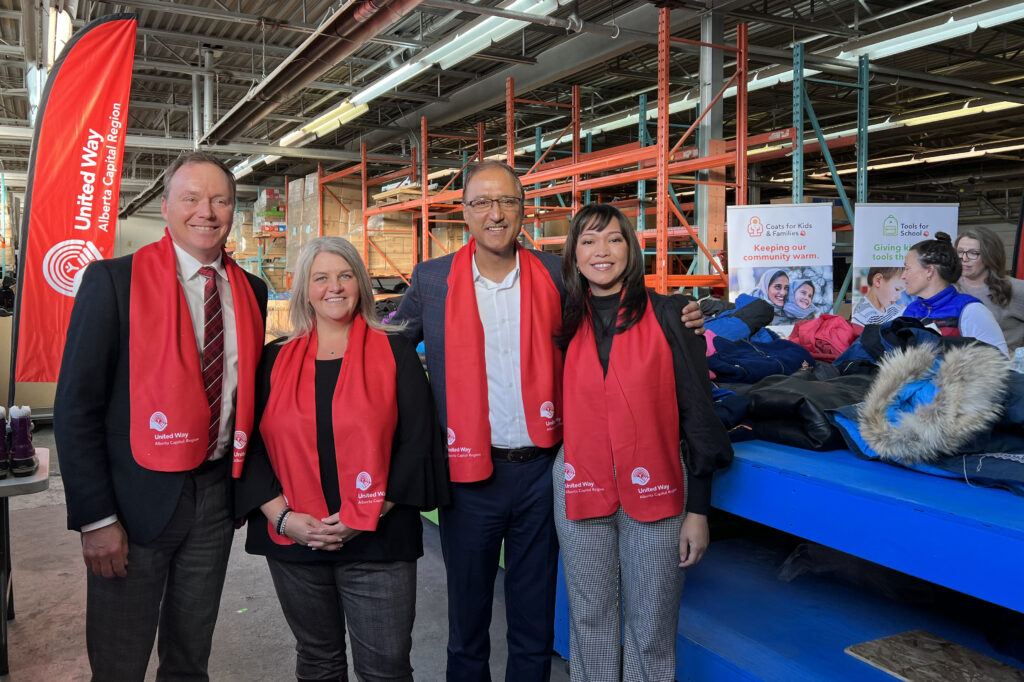May 5, 2023

By leveraging collaborations with experts, United Way is helping improve navigation and access to mental health resources.
Mental health supports people’s capacity to cope with the stress of life, to learn and work, and to contribute to their community. Like physical health, everyone has mental health – but some people may experience short-term challenges, or chronic mental illness.
For those facing mental health challenges, the lack of access to mental health care and support can increase a person’s risk of falling into poverty. Navigating social services and community resource systems can be difficult and overwhelming, especially while grappling with other barriers or issues. It can be hard to know what help is available, and how to access it.
Our local United Way supports several programs and initiatives that aim to make the mental health sector easier to navigate, more affordable, and more accessible.
Thanks to United Way supporters, in 2022:
📝 18,873 community members attended mental health education sessions.
🗨 19,445 individuals facing mental health challenges received timely counselling.
💗 3,371 people who experienced domestic or sexual violence received caring supports.
☎ 87,430 people were connected to needed services by skilled staff.
Mental Health Week is May 1–7, and this year’s theme centres on storytelling. Sharing people’s stories of mental health challenges — and their mental health successes — can be a powerful force for change.
The following article contains real stories of people who received mental health support from United Way- funded programs. Their names and some details have been changed for privacy and confidentiality, and stock images are used to illustrate their stories.
Navigating the social sector is hard, and it’s not always clear where to go for help. 211 Alberta, an initiative of United Way, is a free, confidential 24/7 helpline and online resource database.
While 211 is not strictly a mental health support line, the frontline staff are co-located with Distress Centre Calgary and Canadian Mental Health Association – Edmonton, meaning they are trained in crisis support. In 2022, 15% of 211 Alberta contacts were categorized as Mental Health and Substance Use Disorder Services.

Carol was encouraged to call 211 by her pharmacist, because she was having trouble connecting with an addictions counsellor. Carol shared that she was seeing someone through a community agency, but they had retired, and they didn’t really work with her to find someone else.
The 211 Community Resource Specialist spoke with Carol about calling the new intake line at the agency to see about getting a new counsellor. They also spoke with Carol about potential options to use her benefits at work to access a counsellor and provided a few options for her. The 211 Community Resource Specialist provided Carol with information on how to get a new referral for a psychiatrist, and how to find a family doctor.
Recognizing that Carol had a lot going on and had been struggling to access supports, the 211 Community Resource Specialist offered a referral to the Distress Line as an option to get some short-term support right away if she needed.
As is common practice, 211 followed up with Carol a few days later. She shared that her situation had improved: not only had she found a family doctor and had her first appointment, but she also had connected with a new counsellor, and had a referral in to a new psychiatrist.
The Community Mental Health Action Plan (The Action Plan) was established in 2015 and continues its commitment to improving mental health in the Edmonton area. This partnership is made up of diverse community members from government, non-profit organizations, and individuals, and is provided backbone support by United Way.
The Action Plan is focused on improving service delivery, system integration, and the use of evidence-informed practices for mental health. Through collaboration, The Action Plan creates mental health resources, evidence-based tools, and shares training opportunities for the community.
One such resource is The Need Help for Mental Health? Tool, a customizable poster designed to help people connect to mental health and social services in their community by reading through the questions and deciding which services meet their needs.
By listening to the community, including those with lived experience with mental health issues, the Action Plan can learn and address the gaps and needs within the mental health system.

In 2022, The Action Plan continued to support the Wellness Networks’ Peer Working Group hosted by e4c and the Wellness Network. The Peer Working Group is composed seven people with lived experience of mental illness, addictions, and trauma. Peers from other organizations, or people with lived experience who work in community, are invited to participate.
The group meets monthly to brainstorm, engage, and participate in training sessions and opportunities. Members share a depth of practice and lived experience, co-creating co-facilitating workshops and wellness groups that fill gaps in the system.
A member of the Peer Working Group is a survivor of a suicide attempt, and formed a sub-committee and support group for people who have survived a suicide attempt. This group, now known as SASSY (Suicide Attempt Survivor Support YEG), meets monthly to learn from one another, find understanding, and build a support network. Through this group, a Recovery College course for suicide attempt survivors was developed in collaboration with e4c. Additionally, a virtual training program was piloted in partnership with Luminate Wellness, which allowed facilitators to grow their skills by working with peers to provide strengths-based feedback. This model goes back to the foundation of peer support and the creation of the Peer Working Group – supporting others in the community that do peer work.
For vulnerable students, graduating is about more than just getting good grades. Healthy relationships with family and friends, food security, housing, and mental health resources are vital in supporting students on their education journey.
United Way’s All in for Youth (AIFY) collaborative brings together local services to help address the complex needs children and families experience when living with low income. By offering wraparound supports for students and families directly within the school, AIFY helps address the challenges that might otherwise keep students out of school. With AIFY support, students and families report greater resiliency, more positive relationships, improved self-esteem and social skills, and better mental health.
By supporting youth on their educational journey, AIFY can increase high school completion rates and set the next generation up for success.

Sophia is an AIFY student who has experienced trauma and loss. She was extremely quiet and withdrawn and did not seem to connect easily with others. When speaking with school staff, Sophia would often avoid eye contact and barely mutter a response.
Sophia loves art, and so this year, the Out-of-School-Time (OST) Coordinator convinced her to try the OST Art Club program with the hope it would improve her social skills while taking part in activity she enjoys. Sophia started the OST program and was also matched with a mentor in the community-based Big Sisters program.
Sophia began to open up in her social interactions. She started taking on leadership opportunities at school and made a wider circle of friends. Her connection to a larger social circle, the Club, and strong supportive relationships have been a big step in Sophia finding a sense of self and social confidence.
In addition to United Way initiatives that have mental health support components, United Way collaborates with and funds agency partner programs that provide critical services such as mental health support and referral services.
The Family Centre provides professional individual, couple, family, and group therapy on a sliding scale to people who cannot afford to pay the market rate of $200 to $275 an hour. Some clients are paying less than $20 an hour, and for many fees are waived completely. The Family Centre collaborates closely with United Way on other initiatives, including All in for Youth, Edmonton’s Neighbourhood Empowerment Team (NET), and the Community Mental Health Action Plan.

Doug first came in for a drop-in single session of counselling to The Family Centre with significant suicidal ideation and signed up for the subsidized ongoing counselling.
In his first session, Doug identified that his goals were to reduce his feelings of loneliness, strengthen his hope for the future, and feel a sense of purpose in life again. With therapist guidance, Doug explored and processed his childhood trauma and identified ways that the trauma continues to impact him, ensuring safety and stability as they did this work. They reflected on Doug’s strengths, identified coping strategies, and practiced strategies for regulating his emotions. Between sessions, Doug would practice the strategies he learned, became more aware of his triggers, and practiced regulating before becoming activated.
Gradually, Doug reported feeling more hopeful that he could gain control of his life and feel joy again, and saw a decrease in his suicidal ideation. Over the last few sessions of counselling, Doug began to connect with natural social supports in his life, connecting with a group of people who shared his love of hiking and being in nature.
“I was in such a dark place when I first came to The Family Centre,” Doug shared.
“I didn’t think I would ever feel better and didn’t see a way out. By looking back on how I got there and learning some tools, I realized I still had some control in my life and didn’t have to let the past take over. While I still have work to do on myself, I’m looking forward to what the future might hold for me. I am really grateful for the support I received here.”

Whether you are returning to an office environment or having others join you in what was a quiet space after this long, it’s natural that this change may take some getting used to.

An initiative of United Way, 211 Alberta works to shine a light on the resources available in every community across the province by connecting individuals to a network of resources that can help – all for free.

The affordability crisis is putting pressure on non-profits too. Learn more how United Way is collaborating with frontline agencies, all levels of government, and passionate changemakers to build a stronger social sector.